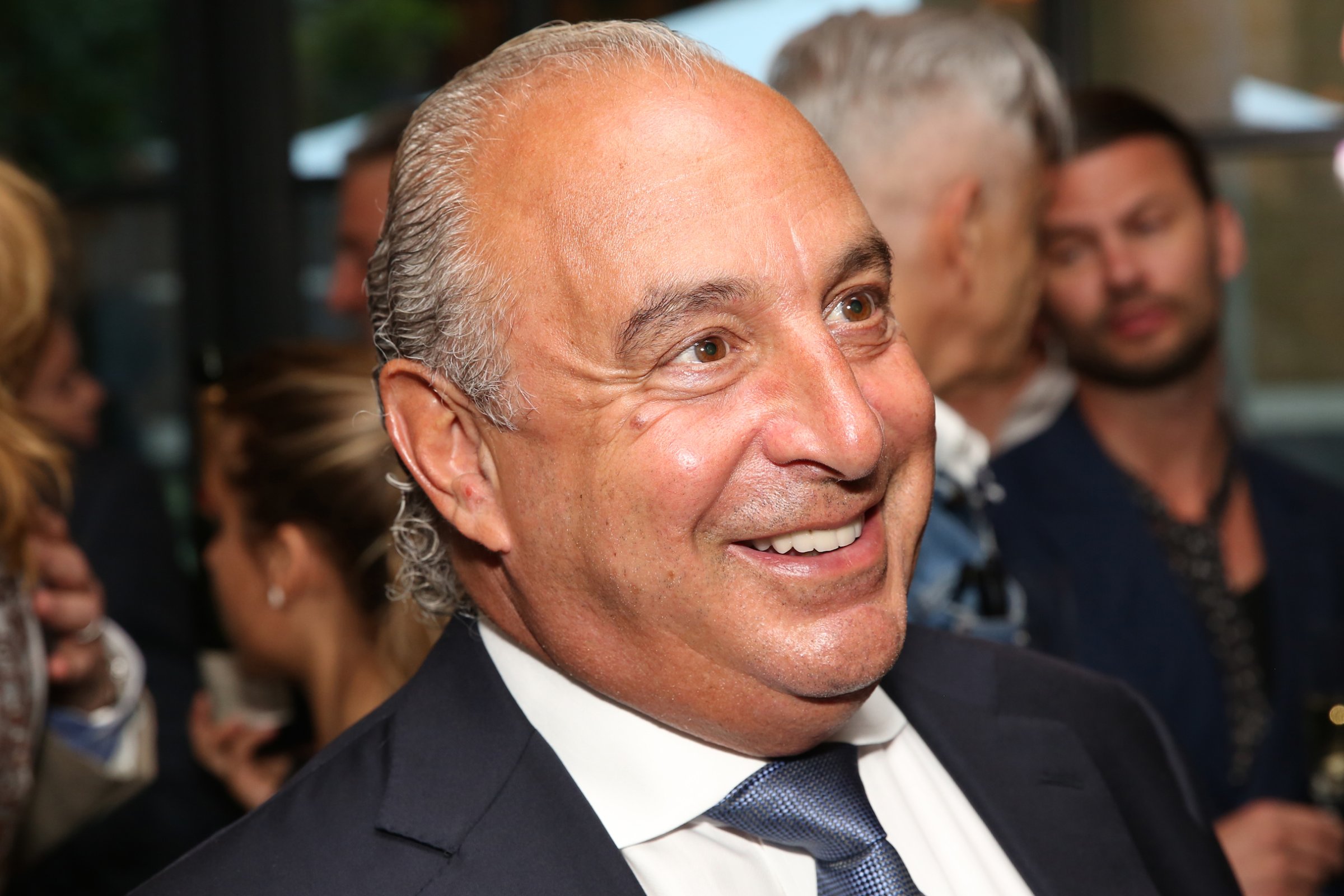
A British billionaire businessman was allegedly able to get a court order stopping the U.K. press from reporting allegations of sexual misconduct and racial harassment – a case that is raising questions of free speech and freedom of the press in the era of #MeToo.
Sir Philip Green, the owner of Topshop, was named on Thursday as the businessman in question. The allegations against the businessman were first reported by the Daily Telegraph of London on Wednesday, but Green could not be named due to the court order.
Lord Peter Hain, a member of the House of Lords in the U.K. Parliament, used the longstanding rule of parliamentary privilege to name Green. The rule allows lawmakers to avoid prosecution for whatever they say in the chamber — a convention designed to safeguard democratic society. It means media are able to report his name for the first time.
“I feel it’s my duty under privilege to name Philip Green as the individual in question, given that the media have been subject to an injunction preventing publication of the full details of a story, which is clearly in the public interest,” Lord Hain said.
In a statement to the British press, Green denied the allegations of “unlawful sexual or racist behavior”:
“I am not commenting on anything that has happened in court or was said in Parliament today. To the extent that it is suggested that I have been guilty of unlawful sexual or racist behaviour, I categorically and wholly deny these allegations. Arcadia and I take accusations and grievances from employees very seriously and in the event that one is raised, it is thoroughly investigated. Arcadia employs more than 20,000 people and in common with many large businesses sometimes receives formal complaints from employees. In some cases these are settled with the agreement of all parties and their legal advisers. These settlements are confidential so I cannot comment further on them.”
The gag order is a quirk of U.K. media law, which allows the courts to prevent the press from reporting on a non-disclosure agreement or other information deemed an invasion of privacy. In the U.K., media are more constrained by what they can say than in the U.S., where the First Amendment protects freedom of the press. The U.S. Supreme Court has repeatedly ruled against “prior restraint” preventing the publication of information.
Critics say the #MeToo movement has not taken off in the U.K. to the extent it has in the U.S. because of these rules.
Green has been accused of sexually and racially harassing members of his staff, as well as bullying them in a series of court settlements, according to the Telegraph, which could not name him in its reports. On Wednesday, the Telegraph revealed Green — then unnamed — had made at least five “substantial payments” to victims as part of non-disclosure agreements.
The Telegraph also interviewed a woman as part of its coverage who detailed alleged sexual harassment — but neither the newspaper nor, the woman were able to say whether Green was the suspect. The details of the accusations at the center of the court disputes are still unknown. The woman was not involved in the court cases, which is why the Telegraph was able to report her allegations.
The Telegraph said Green had spent nearly $640,000 on legal fees to prevent his name getting out.
The Telegraph’s first report on Wednesday made a splash in Britain. After publication, Prime Minister Theresa May said she would act to reform the “unethical” use of non-disclosure agreements. The opposition lawmaker Jess Phillips said “We are a year on from MeToo and nothing has changed.”
More Must-Reads from TIME
- Breaking Down the 2024 Election Calendar
- How Nayib Bukele’s ‘Iron Fist’ Has Transformed El Salvador
- What if Ultra-Processed Foods Aren’t as Bad as You Think?
- How Ukraine Beat Russia in the Battle of the Black Sea
- Long COVID Looks Different in Kids
- How Project 2025 Would Jeopardize Americans’ Health
- What a $129 Frying Pan Says About America’s Eating Habits
- The 32 Most Anticipated Books of Fall 2024
Write to Billy Perrigo at billy.perrigo@time.com